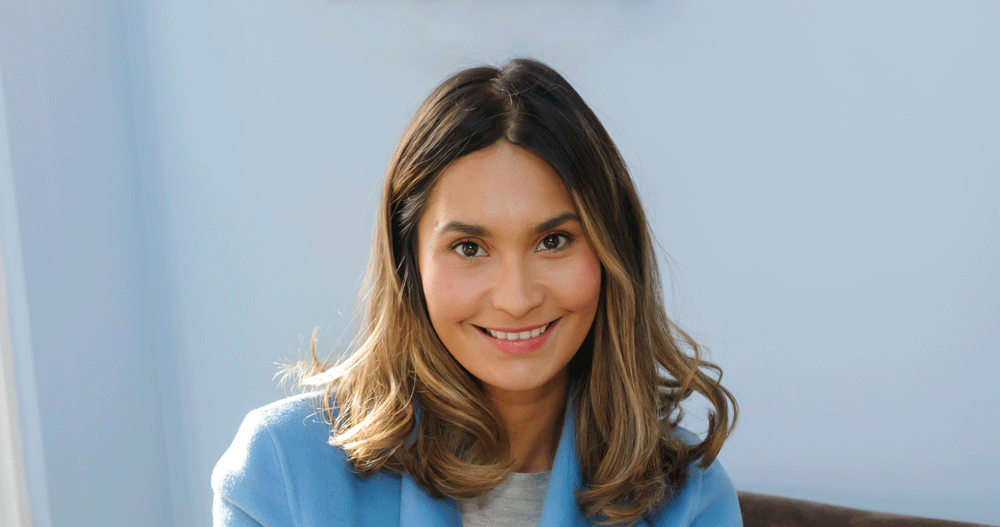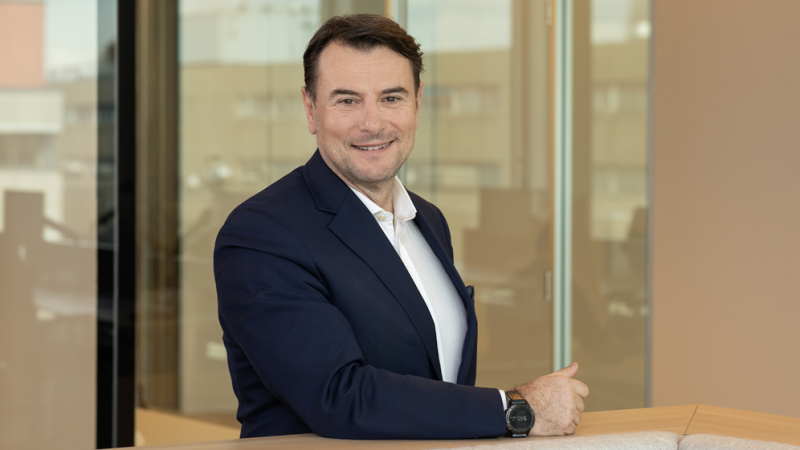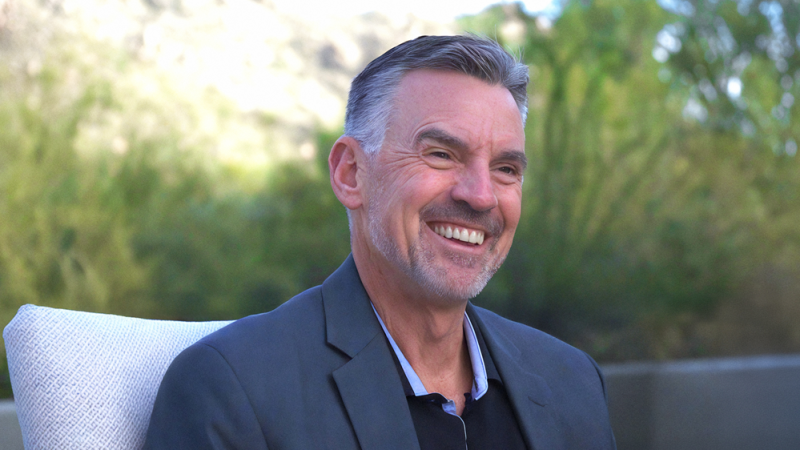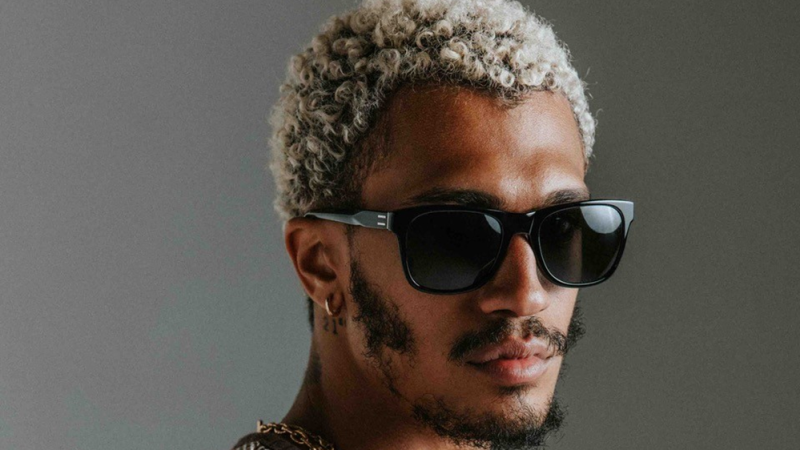Teenage makeup businesses tend not to last long. It’s not that they don’t do well. Many household names, such as Clinique, started out in the teenage market. But when you start out in the teenage market, your audience grows up quickly, so the makeup companies that have earned their brand loyalty tend to grow up alongside them until teenagers are only a minor slice of their market.
indu is taking a different approach. “In a nutshell, we are a beauty brand for teenagers. It is a very clear, quite simple directive,” says Reena Hammer, indu’s CEO and Co-Founder alongside Aaron Chatterley and Richard Schiessl. “We are not necessarily a Gen Z or Gen Alpha brand – we are about teens. It is important for us to be relevant and a brand for teens, rather than picking up a 15-year-old and keeping her until she’s 40.”
The reason indu has decided to prioritise the teen market is that it is one that Hammer feels has been neglected. Its offering spans skincare, makeup, and a colourless collection that includes a hybrid of makeup and skincare.
“We make products you can get away with at school. The sort of thing that your dad won’t tell you to wipe off, but also the essentials for an older teenager,” Hammer points out.
Meeting an unmet need also means entering a market without much competition.
“When you really look at what’s out there for teenagers there isn’t much,” Hammer says. “Who is our competition? There are the older brands, some in skincare or makeup, a lot very tween-based brands, but there are no teen complete beauty brands, nobody who does the holistic approach.”
The Kids Are Alright
There is a reason there is so little competition in the sector. The teen market is notoriously fickle. Any attempt to relate to your customers “on their level” could easily end up looking like that meme of Steve Buscemi holding a skateboard (if that isn’t already old hat).
This is why, at every stage of indu’s work, it involves the experts.
“Everything we do has teens involved,” says Hammer. “We had teens in the kitchen 18 months before going to market and consistently ever since, everywhere from branding to choice of colours to our logo, textures, smells, names, content, what platforms to use, and what events to put on.”
Events, in particular, are a key part of the indu brand. The company launched with a huge pop-up in Covent Garden, mixing the classy with a grimy underground look across a 10,000 square foot area, with games arcades and ice cream.
“One of the things we have seen among all consumers post-covid, is that people love real life experiences,” Hammer shares. “There’s this preconception of teens wanting everything to be online, but people still want that physical experience. We had queues around the block. That was a really important moment for us.”
As the business has grown, it has continued to be informed by its teen committee.
“It all goes through our teen committee at some point. We would have made a lot of mistakes if we hadn’t done that. Grown-ups in the room might think something is cool, but until you show it to the teens you don’t know.”
Of course, the first question to ask is “Where can you find those teens?” In 2022, the first thing indu did was commission Kids Know Best, the consultancy firm used by Lego to get feedback on their products. The results that yielded would set the foundation for the entire company’s approach.
“That was ultimately the spark,” Hammer recalls. “We realised we needed to do this all the time. It could not be just a one-off exercise.”
indu put together an application form and began assembling a committee of teenagers, not just from the UK, but around the world.”
It started with 30 people, growing organically over the last two years.
“What’s amazing is that there are so many different things they can get involved in. Some might be in product, some are in content and marketing,” says Hammer. “They don’t all have to be involved in all aspects of the business. It allows them to express their interests, but it isn’t in a homework way. Our teens are heard and listened to and appreciated.”
The insights this approach provides are invaluable. Among other things, it has vindicated indu’s vegan, cruelty-free approach, its use of components made from recycled material and its refillable packaging.
Alongside this teen voice, indu values its adult team.
“From the beginning, one of our first recruits was our Head of Community. We wanted somebody young. I’m pushing 40, my co-founders are in their 50’s and 60’s. We needed some younger blood in the team,” Hammer says.
The person they chose was someone who used to work on Discord, a platform primarily used by the gamer community.
Hammer says, “We are always trying to maintain a mix of experience with a level of flexibility, and young people who can steer us and be listened to. We have been very fortunate.”
Keeping Media Social
It also means that in a time when Facebook is full of Grandparents, and Twitter and Bluesky are the realm of the Geriatric Millennial, indu knows which social media platform teenagers still congregate on.
“Tiktok is a massive one. Instagram too. We reach a decent number of parent customers through that. Snapchat, but there they want to chat with friends and not be bombarded by brands,” Hammer shares with us. “Pinterest is coming back in a big way. They love the mood board aesthetic.”
Of course, it remains true, they are still teenagers.
“Teens are fantastic and inspirational, but they are still young people, so if you set up a call some of them turn up, some don’t,” Hammer observes.
It is also true that if your business’s market, not to mention its key consultants, are not legal adults, that brings challenges with it. The rules around social media for those under 16 are complex and change frequently as the debate rages on the best way to regulate them. Beyond those rules, indu is also keenly aware of the responsibility it has as a company selling to young people.
“We have constant challenges to keep on top of and aware of the issues around that,” Hammer tells us. “We are functioning in a pioneering area with new challenges. We always want to be incredibly responsible with teenagers. We do not perpetuate rubbish on social media, we try to balance talking to them in places they care about, but in a responsible way.”
Hammer has big ambitions for indu, particularly as the brand has begun retailing exclusively online and through Sephora UK. In years to come she wants people to think of “indu” when they hear “teen beauty” in the same way you think “Apple” when you hear “phone”. But she wants to build that platform with a mission in mind.
“We want to help teenagers build a healthy relationship with beauty,” she says. “A lot of it is convoluted 15-step routines or unhealthy ideals. We want a quality product they are proud of that plays into their aesthetic affinity, that is affordable, accessible, and with incredible formulation.”
More than that, for Hammer it is about treating teenagers like human beings while encouraging a healthy relationship with beauty.
“There’s still this perception that it is okay to be rude about teenagers,” she observes. “We just want to say that this time period is difficult, but we are here to support you and help you embrace this time, because it is wonderful. That is key to everything that we do.”






